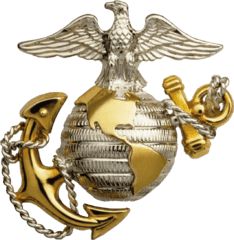Military Substance Abuse Caseworkers
Overview
What are the responsibilities of this role?
Substance abuse caseworkers provide individual and group counseling, perform crisis intervention, and offer education and counseling related to substance abuse. They perform urinalysis screenings and conduct assessments and interviews. They develop treatment plans and provide assistance to leaders in addressing issues related to substance abuse. They prepare summary reports and maintain patient progress data, and are responsible for implementing prevention, outreach, and educational programs related to alcohol and drug abuse for members of the Military and their families.
What is the work environment like?
Substance abuse caseworkers usually work in offices or clinics.
How many people have this role in the Military?
No data available for this section.
Compensation
Understanding How Military Pay is More Than Just a Salary
Base pay is the standard income you’ll earn as a service member, providing a stable foundation to start achieving your financial goals.
- Always fixed based on rank and service time.
- Distributed monthly.
What is the typical salary range?
No data available for this section.
Military Details
Is this a staff or leadership role?
What does the training for this role entail?
All enlisted service members complete basic military training, which includes time spent in a classroom and in the field, and covers tactical and survival skills, physical training, military life and customs, and weapons training. Substance abuse caseworkers develop skills in meeting the social and psychological needs of service members primarily through on-the-job learning in various healthcare environments. Training content may include:
- Orientation to counseling and social service programs
- Interviewing and counseling methods
- Treatments for drug and alcohol abuse
- Psychological testing techniques
Education
What level of education do professionals in this role have?
Which college majors best prepare you for this role?
- Social Work
- Clinical/Medical Social Work
- Social Work, Other
Learn About How Military Can Pay for 100% of your College Degree
Skills and Interests
What knowledge is essential to bring to the table?
- Therapy and Counseling
- Psychology
- Customer and Personal Service
- English Language
- Education and Training
What personality traits help people thrive in this role?
You love connecting with people, helping others and making a difference in your community.
You love figuring out how things work and researching subjects that interest you.
RIASEC represents six broad interest areas—Realistic, Investigative, Artistic, Social, Enterprising and Conventional—helping individuals identify careers that match their skills and preferences.
Take the RIASEC TestData supplied by Bureau of Labor Statistics, National Center of Education Statistics, Defense Manpower Data Center (View our update schedule). Contact any business, college or military service branch to answer additional questions.

